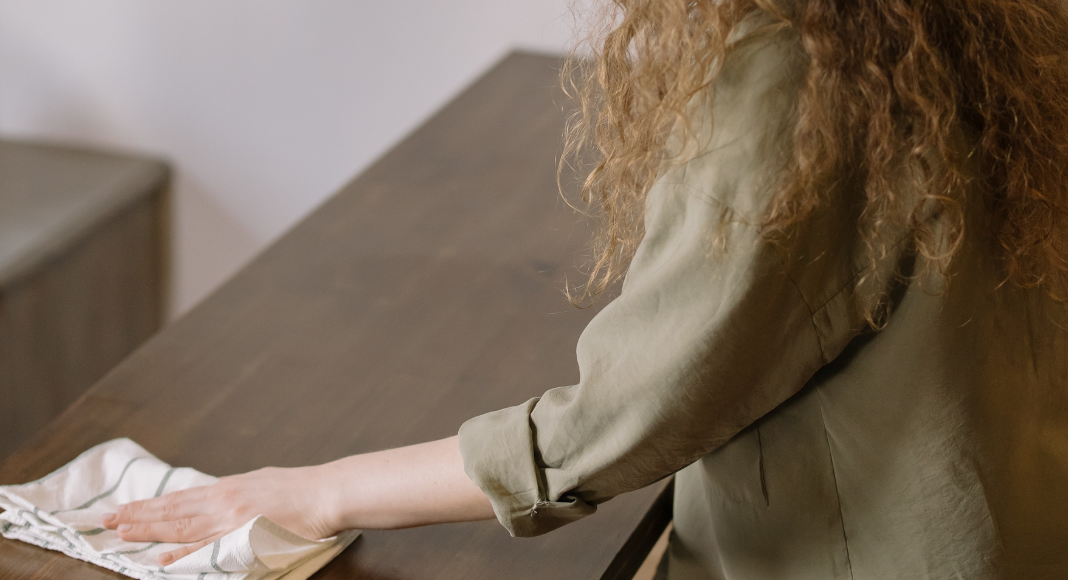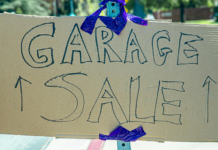 When I took a look at my Goodreads book challenge last year, I noticed that I barely read any nonfiction books. That’s not a bad thing, but this year, I thought I’d shake things up by reading some of the nonfiction books I’ve saved in my Libby app to borrow. So in January, I borrowed the book How to Keep House While Drowning: A Gentle Approach to Cleaning and Organizing by KC Davis, LPC.
When I took a look at my Goodreads book challenge last year, I noticed that I barely read any nonfiction books. That’s not a bad thing, but this year, I thought I’d shake things up by reading some of the nonfiction books I’ve saved in my Libby app to borrow. So in January, I borrowed the book How to Keep House While Drowning: A Gentle Approach to Cleaning and Organizing by KC Davis, LPC.
I honestly don’t remember where I saw this book recommended, but I do know what drew me to it. I love the idea of having a tidy and organized house, keeping up with daily or weekly chores, and just having a streamlined approach to making my home run well. I also know myself and know that I’ve looked into all the different things: FlyLady cleaning systems, YouTube mavens of organizing, Marie Kondo’s approach to all things decluttering, etc. (Incidentally, I felt very vindicated seeing Marie Kondo backtrack on her decluttering method because kids make decluttering impossible).
All those systems, guides, and approaches are very well and good, but I find myself unable to implement them. So enter KC Davis and her book.
I want to start out by saying that this book might not be for everyone. In fact, Davis opens saying she’s primarily writing to the people who fall more on the neurodivergent spectrum. She addresses those with ADHD, autism, and even other mental health disorders like depression and anxiety.
Right off the bat, Davis addresses the elephant in the room of different cleaning/organizing approaches. “So how is this book different from other self-help books? For one, I don’t have a program; I have a philosophy: You don’t exist to serve your space; your space exists to serve you.” This one statement has been living in my brain rent-free since reading her book. I love the thought that I don’t need to fit myself into my space as it is. I can take my space and make it serve me better.
Why have I never thought to do things this way before?
I don’t really know. And perhaps that’s basically what all other self-help cleaning/organizing gurus are teaching when it’s boiled down, but I love that Davis just spells it out right in the beginning of her book.
Davis spends time addressing the reasons we feel frustrated by our homes internally. Instead of discussing all the externals (constant mess, no good organization, having too much stuff, etc.), she says to think of this as “not a journey of worthiness but a journey of care.” In fact, she stresses that “lots of decisions are moral decisions, but cleaning your car regularly is not one of them.” She continues to say, “How you relate to care tasks – whether you are clean or dirty, messy or tidy, organized or unorganized – has absolutely no bearing on whether you are a good enough person.”
Care tasks – also known as those tasks around caring for your home and yourself – are morally neutral.
Honestly, I saved so many quotes from this book I could probably just fill an entire page with them and keep going. Chapter 3 is titled “For all the self-help rejects,” and it honestly just made me laugh because I think I fall into that category.
Davis gives lots of encouragement about how to manage these care tasks. She even breaks down a bare minimum list for different areas of the home and even self-care for when you’re struggling to do much of anything. It’s intended for people who struggle with mental health and other issues, and find the tasks of caring for the home daunting at times, and she explains how to break down care tasks into the things that are most important, like making sure any garbage is taken care of so you aren’t inviting bugs into the home. There are certain tasks that are more important for the health and safety of a home that she discusses as being the priority when it’s especially difficult to clean, and then there are the tasks you can let slide a bit.
I love that instead of pitching another 10-step program or daily chore chart, Davis gives some simple steps you can take when you’re dealing with an overwhelming schedule or mental health crisis. And her constant reminder that care tasks are morally neutral takes a lot of the pressure off that we unnecessarily take on from either societal implications about mess or the ways we were raised to think about housework.
Overall, I would absolutely recommend this book to basically anyone. It’s full of great advice, and I love the many reminders that we shouldn’t be slaves to our homes. We don’t have to serve our homes. We need to find the function in our homes so that they begin to serve us instead. It’s a different way of thinking about house — and self-care — but it really helps me to think about the things in my house, the things I have to do as tasks that will serve “future me” and make my life easier.





















